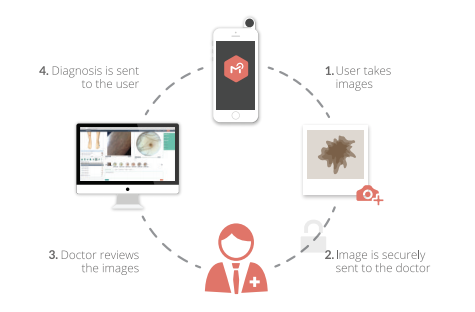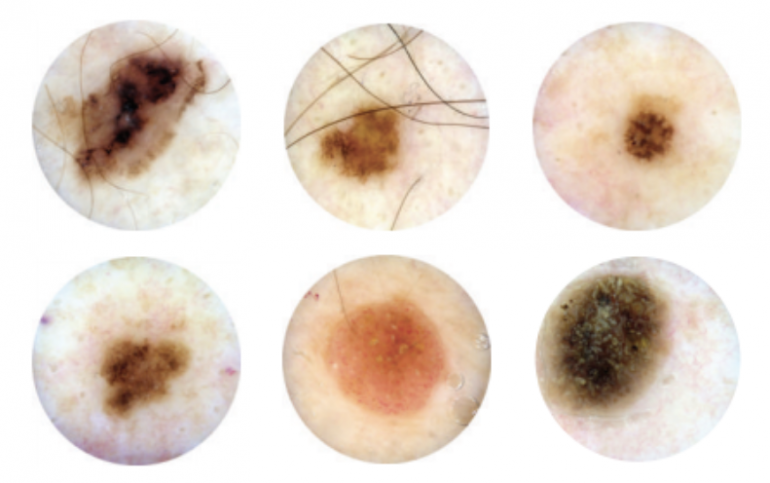Could your next selfie save your life? Maybe, thanks to the new Molescope iPhone app that’s getting worldwide attention.
“I think we are in shock right now,” says Molescope developer Maryam Sadeghi from her office at SFU’s Digital Health Hub in Surrey. “In the first day after the 23rd World Congress of Dermatology in Vancouver, we had requests from Brazil, Mexico, Egypt. I was like, OK, I think this is a dream as an entrepreneur.”
Using a high definition imaging attachment on any iPhone, the app builds a 3D map of moles on your body in order to guide patients through self-checks between professional assessments. Sadeghi developed Molescope as part of her PhD research at Simon Fraser University (SFU).
Designed to be user-friendly, Molescope guides the patient with educational materials about melanoma (skin cancer) and allows the high-quality images to be used by physicians, general practitioners and dermatology specialists for ongoing patient management.

Although dermascopy has been around for 60 years this the first time anybody has thought of putting the technology on a mobile device, Sadeghi says. Since the congress, they’ve gotten 400 emails in the past week from dermatologists in 27 different countries.
Molescope has the potential to blow up this sector, where typically a dermascope will cost doctors between $1,000 and $3,800. Molescope will be offering their attachment and app for between $99 and $199, a significant reduction in the cost.
Why the low price point? Sadeghi hopes that will encourage Canada’s 500 dermatology specialists and other skin doctors in Canada to get on board. “When you are talking thousands of GPs, millions of patients, you have the luxury of lowering the price.”
Molescope is not being advertised as a diagnosis tool. However, with patients providing their doctors with imaging and archiving solutions of moles it could catch melanoma before it becomes serious. The survival rate for early diagnosis is 98 percent.
Mobile medical imaging doesn’t have to be limited to skin cancer detection either.
“It can be applied to other skin problems, it can be applied for wound management and for a lot of the other requests that we are receiving,” Sadeghi says. “Even for optometry, ear exams or anything visual.”
The company is now shipping pre-orders for a limited number of patients participating in three pilot projects across Canada in B.C., Ontario and Quebec, helping the company expand its mobile imaging technology around the world.

